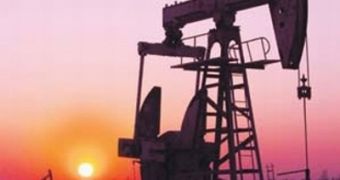Unknown to many, today marks two very important celebrations: the Banana Lovers Day and the US National Petroleum Day (or the National Oil & Gas Appreciation Day, if you prefer).
Truth be told, people who hold banana splits very close at heart may in fact spend some time trying to wrap their heads around how this fruit impacts on their day to day life, but environmentalists will do anything but praise the use of petroleum in today's industries.
Quite the contrary: their main focus will be on raising awareness with respect to how this energy source has long become obsolete, and on convincing more people that this fossil fuel needs to be put behind us in favor of renewables.
As The Ultimate Holiday Site puts it, “Crude oil is running out and, as we're learning the hard way, kind of ruining the whole planet. As we work to explore and implement other types of energy, perhaps today see if you can cut back on your own petroleum use.”
On the other hand, there is no denying that crude oil has in fact shaped the history of human society, which is why a museum in Titusville, Pennsylvania, is presently housing an exhibit suggestively entitled “There's a Drop of Oil and Gas in Your Life Every Day.”
For those unaware, the city of Titusville, Pennsylvania stands at the center of the US petroleum industry, as it is here where engineers first succeeded in using a drilling rig to extract oil on the 28th of August, 1859.
Reporting on this exhibit, The Titusville Herald explains how, regardless of one's personal views on the environmental impact of petroleum, one needs to nevertheless accept that when it comes to American history, few events have played such a major role in establishing its national profile as this first oil extraction has.
From where we stand, petroleum has indeed served to boost many national economies worldwide, but given the fact that this natural resource is a limited one, perhaps the time has come to put it behind us and push for renewables instead.

 14 DAY TRIAL //
14 DAY TRIAL //